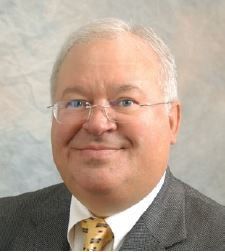Homeowners are free to explore reverse mortgages at any time, but there are a few particular times when these lending agreements are especially helpful. If you're facing any of the following situations, now may be the right time to consider getting a reverse mortgage.
When Retiring from Your Job
Since reverse mortgages are often used as part of a retirement plan, it only makes sense to look into them when you retire from your job.
You may find that taking out a reverse mortgage when you retire is a wise financial decision because it lets you delay withdrawing funds from other accounts or assets. By getting a reverse mortgage, you might be able to delay:
- Accepting Social Security payments
- Making withdrawals from a 401(k) or IRA
- Offloading stocks or mutual funds in other accounts
- Selling real estate that's appreciating quickly
If any of these investments is gaining value faster than your home is, you'll be further ahead by using the equity in your home rather than the other assets to fund your first years of retirement. The other investments will be able to continue to grow, which will add value to your nest egg.
Even if you decide not to get a reverse mortgage right after ceasing work, it's still worth investigating the options after you retire. You'll want to be familiar with all of the retirement funding tools that are available so you can make wise financial decisions throughout your retirement. What you learn about reverse mortgages may help you in 5, 10 or 20 years.
When Facing a Major Unexpected Expense
Anytime you face a major unexpected expense during retirement, it's a good idea to consider all of the ways that you may pay for the expense. For expenses that total thousands (or tens of thousands) of dollars, a reverse mortgage might offer a convenient and practical way to pay what you owe.
Medical bills, of course, are one of the most common major unexpected expenses retirees face. Should you or your spouse face an unmanageable medical expense, a reverse mortgage may help you pay for the care that's needed.
When Assuming Responsibility for Grandchildren
If you're one of the few grandparents who become the primary caregivers of their grandchildren, you'll face increased expenses. According to a report from the United States Department of Agriculture, the cost of raising a child from birth to 17 years of age now costs $233,610. Even if you've saved for retirement, you may not be prepared for such a high expense.
A reverse mortgage can help cover the cost of raising one or more grandchildren manageable. Whether you're fully retired, semi-retired or still working, a reverse mortgage that provides monthly payments will make managing a monthly budget easier. One that offers a large lump sum might be used to pay for college or other major expenses.
In these situations, using a reverse mortgage to fund the raising of your grandchildren may decrease how large an inheritance you're able to leave them. It won't, however, decrease the legacy you leave with them. In fact, it'll increase the legacy because what you do for them when they're kids will have a bigger impact on them than any inheritance will.
When You Don't Have Any Heirs
If you don't have any person or organization you want to leave an inheritance or gift for, you might as well take out a reverse mortgage. Getting one will let you use the equity in your home, and there's no reason you shouldn't enjoy the value you've accumulated in your home.
If you're interested in getting a reverse mortgage
, contact us at Retirement Funding Solutions.













